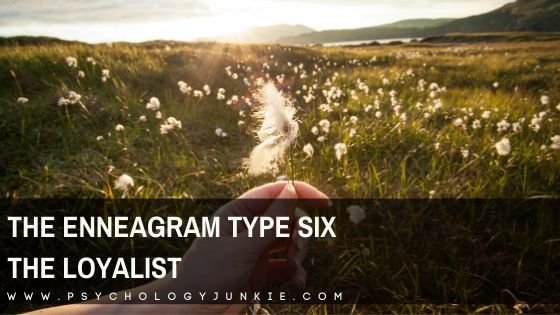Building Walls: How Enneagram 8s, 9s, and 1s Protect Their World
If you’re an Enneagram 8, 9, or 1, you’re part of the body or instinct triad. This means you’re focused on either controlling your instincts, repressing them, or giving into them. As a body type, you use your physical energy to deal with the world and the challenges you face. One way you do this is by creating “ego boundaries,” or walls between yourself and the outside world – or maybe even between yourself and your own feelings. These boundaries help you feel more in control. They stop the world (and your own emotions) from affecting you too much. But each type handles this differently. Let’s take a closer look.
Not sure what your Enneagram type is? You can find out by taking our questionnaire.

Building Walls: How Enneagram 8s, 9s, and 1s Protect Their World
Enneagram 8: Pushing Outward
Enneagram 8s build their boundaries outward, like an intense, protective force field. Their energy is directed outward at all times, keeping the environment at bay. Picture a tidal wave surging outward from them, pushing away anyone or anything that might get too close or too threatening. This defense system helps them maintain control—no one can manipulate, take advantage of, or get the upper hand on them. Their fierce energy creates a boundary that says, “Don’t mess with me,” ensuring that they are the ones in charge of their reality. In their mind no one is going to get the upper hand on them, manipulate them, or control them. They’ll make sure of it by unleashing a torrent of energy outward that prevents anyone from getting too close.
Here’s an example: Imagine you’re having an argument with your partner. The moment things start to feel heated, you instinctively raise your defenses. You might feel overwhelmed by thoughts that they’re trying to control you, get the upper hand, or influence you in a negative way. Instead of letting your partner’s words sink in, you interrupt, raise your voice, or maybe even accuse them of trying to manipulate you. You feel amped up, restless, agitated. Your energy pushes outward, creating a shock in the atmosphere. Your partner might feel overwhelmed by the force of your anger or intensity. This strong outward boundary keeps others at a distance, ensuring that no one gets close enough to hurt you or gain control.
Trust is hard to come by for the average 8, and they often feel they can only rely on themselves. The more difficult their early experiences were, the more intense these outward boundaries become.
Personal Growth for Eights:
When you feel the familiar surge of anger or defensiveness, take a step back. Instead of reacting immediately, take a deep breath and observe the energy moving through your body. How does it feel? How long does it last? Does it shift or change as you focus on it? Allow yourself to feel the intensity without acting on it right away. Then ask yourself if you’ve been actively listening to the other person in the equation. Hold space for their truth as well as your own. Stop worrying about who is “right” or “wrong” and focus on getting to the truth with a bit more calm.
Find out more about Eights: 21 Signs That You’re an Enneagram 8, the Challenger
Enneagram 1: Boundaries Turned Inward
Enneagram 1s, on the other hand, direct their boundaries inward. While 8s push their energy outward to defend against the world, 1s are holding a constant inner battle against their own impulses. There are parts of themselves that they don’t trust, parts that they consider wrong or bad, and they build strict boundaries to keep those parts in check. It’s as if they’re always saying, “I don’t want to feel that way. I don’t want to have that reaction.” They slam the brakes whenever they feel an impulse coming that doesn’t feel “right” or “correct” to them.
Example: Imagine you’re out with friends, and someone makes a joke that feels a little too crude for your liking. As an Enneagram 1, you immediately feel a knot of discomfort in your stomach. Instead of laughing along, you inwardly judge the joke, suppressing any impulse to respond with something inappropriate yourself. You tighten your internal boundaries, pushing down the part of you that might want to join in but feels is “wrong.” This internal battle can make you feel tense and uptight, trying to control not just what you say but also what you feel, because stepping out of line with your values feels like losing control of yourself.
This need for inner control creates a lot of physical tension. 1s are constantly suppressing impulses and emotions, holding back parts of themselves in an effort to stay above reproach and in control. They see these inner boundaries as necessary to be good, moral, and upstanding—but the result can be a constant, exhausting inner struggle.
Personal Growth for Ones:
Relaxing your body is a key step toward growth. Practice progressive muscle relaxation, releasing tension from one muscle group at a time while breathing deeply. As you do this, recognize that many parts of your body have been holding in this tension for a long time. Actively focus on loving these parts; massage your neck, your jaw, your feet. Allow yourself to tend to these weary parts of yourself. Afterwards, take some time to realize that the parts of yourself you don’t like can’t be suppressed forever. Instead of pushing them down, try understanding them. Living alongside these impulses and instincts doesn’t mean giving in to them—it means accepting that they exist without letting them control you. By making peace with your inner shadow, you allow room for greater freedom and less inner conflict.
Find out More About Ones: 21 Signs That You’re an Enneagram One Type
Enneagram 9: Guarding Against Both Sides
Enneagram 9s set up boundaries both inwardly and outwardly. They aim to protect their inner peace, so they push down any feelings or impulses that might disrupt their sense of calm. Like Ones, they resist parts of themselves, but instead of a moral battle, it’s about avoiding emotional disruption. Simultaneously, 9s block out the outside world when it threatens their equilibrium. They might ignore problems in relationships, avoid uncomfortable truths, or sidestep conflict altogether, becoming passive-aggressive instead. This combination of inward and outward boundaries can leave them feeling disconnected from both themselves and others.
Example: You’re in a group discussion that’s starting to get heated, but as an Enneagram 9, you don’t want to get involved in the conflict. Internally, you’re pushing down your own feelings of frustration or disagreement because you don’t want to disturb the peace. At the same time, you’re putting up an outward boundary to avoid letting the intensity of the argument affect you. You might smile politely or nod, but mentally you’ve checked out, avoiding the conflict altogether. Later, you might feel exhausted from holding everything in—trying to maintain your own sense of peace while also keeping the outside world at bay.
For 9s, these boundaries can lead to passivity and disengagement. They hold everything at a distance, but this often leads to exhaustion as they suppress their true desires and feelings. By keeping both the world and themselves at arm’s length, they struggle to fully engage with life.
Personal Growth for Nines:
Set aside time to reconnect with yourself. Journaling or meditation can help you tune in to your inner voice, allowing you to acknowledge your feelings and needs without immediately suppressing them. Write down three things you want or feel, and consider small steps you could take to act on them. This practice helps break down the barriers you’ve set up, making room for a more authentic connection with both yourself and the world around you.
Find out more about Nines: 21 Signs That You’re an Enneagram Nine “Peacemaker”
Aggression and Rage in the Body Types
As you can see, all three of these types deal with aggression and rage in different ways. Eights externalize their rage, acting it out in the world with force. Nines deny their anger, preferring to avoid it altogether. Ones repress it, bottling it up inside in an effort to maintain control. Each type’s relationship with anger is tied to their ego boundaries, and part of their growth involves learning to engage with this energy in a healthier, more balanced way.
What Do You Think?
Have you learned any ways to deal with your own ego boundaries? Do you have any personal insights or experiences to share with us and other readers? We’d love to hear from you in the comments! Find out more about your personality type in our eBooks, Discovering You: Unlocking the Power of Personality Type, The INFJ – Understanding the Mystic, and The INFP – Understanding the Dreamer. You can also connect with me via Facebook, Instagram, or Twitter!

Share via:















